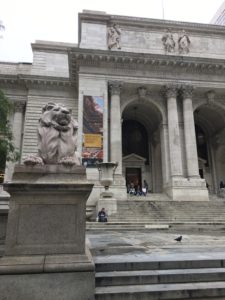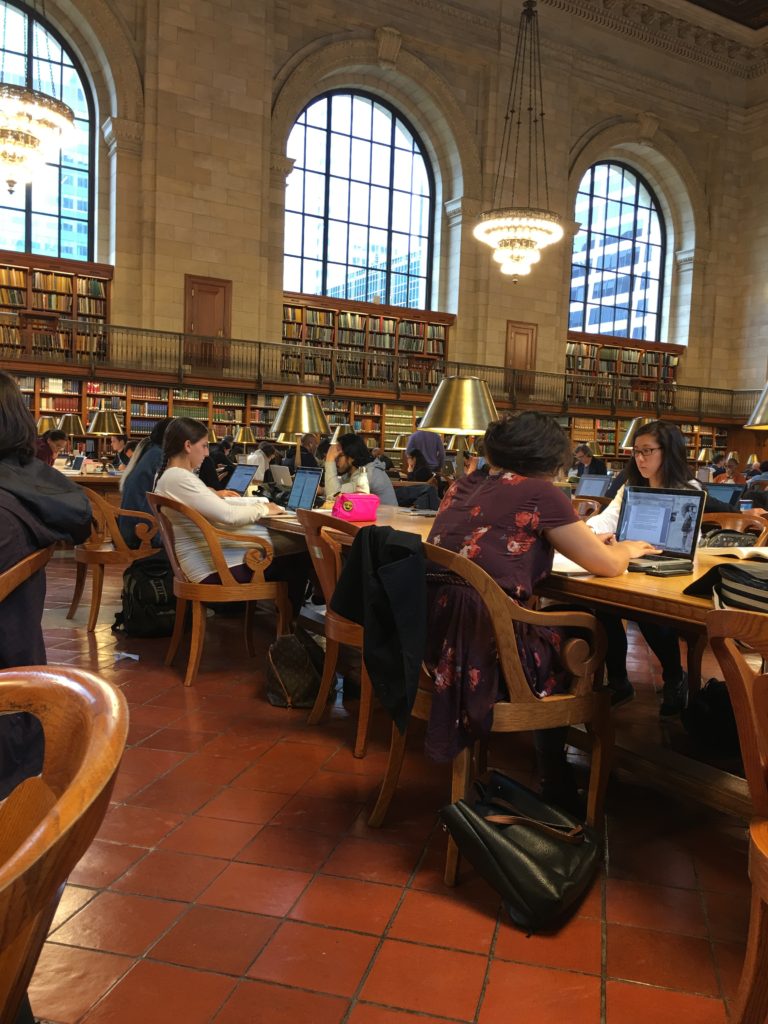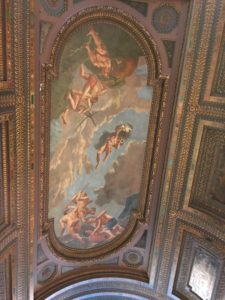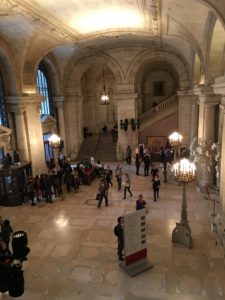 We’ve talked a lot about “transcendence” on this site. “Transcendent” is from the Latin transcendere, “climb over, surpass.” We’ve used it often here in its usual sense of the supernatural “transcending” the natural, such as by experience of an interior contact with a numinous realm: the felt experience of God.
We’ve talked a lot about “transcendence” on this site. “Transcendent” is from the Latin transcendere, “climb over, surpass.” We’ve used it often here in its usual sense of the supernatural “transcending” the natural, such as by experience of an interior contact with a numinous realm: the felt experience of God.
This is being written in the Rose Main Reading Room of the New York Public Library. If you haven’t been, it’s worth a trip to New York all by itself. It is a magnificent place. It is devoted to serious study and access to a vast body of human knowledge. It is a temple to humanism, you might say, and so how can experiencing it result in a sense of the transcendent?
You might first be impressed by its audacious splendor. It is beautiful in its particulars and in its entirety. Though it is stately, serious, and grand, the design and workmanship feels unrestrained. There is no feel of compromise in deference to soul-cramping expedience or efficiency or economy. It is beauty for beauty’s sake.
 This glorious extravagance feeds the soul, and yet not didactically nor pedantically, nor even directly. How many hours of design and execution went into this place? It gives the impression that every workman who laid a stone here did so conscious of his communication of something important to legions of people who would come after. You imagine a reverent mind conceiving the plans, and then rough but loving hands bringing that product of mind to the reality of this edifice.
This glorious extravagance feeds the soul, and yet not didactically nor pedantically, nor even directly. How many hours of design and execution went into this place? It gives the impression that every workman who laid a stone here did so conscious of his communication of something important to legions of people who would come after. You imagine a reverent mind conceiving the plans, and then rough but loving hands bringing that product of mind to the reality of this edifice.
In fact, you would say it is inspired. That word—inspired—means literally an inhalation, but not merely of breath. Rather, of spirit. It is the movement of the Spirit of God in us. One who is inspired to a great work of art can be said to be inwardly moved by God to creativity which is a pale reflection of the creativity of God Himself.
 And yet, this building and its context within the City of New York within the United States in 2016 certainly does not house seminarians or religious contemplatives nor those otherwise devoted to finding out God. Far from it. We have come to the point that we appreciate beauty without understanding the Source of beauty, just as we appreciate the inner-directedness we all have to truth, without understanding the Source of that directedness to truth. We seek inspiration without acknowledging spirit. That’s a little like seeking breath without acknowledging air. It can be done, of course, because Spirit is real and the desire for inspiration is real, just as air is real, and the desire for breath is real.
And yet, this building and its context within the City of New York within the United States in 2016 certainly does not house seminarians or religious contemplatives nor those otherwise devoted to finding out God. Far from it. We have come to the point that we appreciate beauty without understanding the Source of beauty, just as we appreciate the inner-directedness we all have to truth, without understanding the Source of that directedness to truth. We seek inspiration without acknowledging spirit. That’s a little like seeking breath without acknowledging air. It can be done, of course, because Spirit is real and the desire for inspiration is real, just as air is real, and the desire for breath is real.
But let’s not be short-sighted, embracing transcendence as a feeling, only, and not evidence of the reality of He who transcends.

1 thought on “New York Public Library”